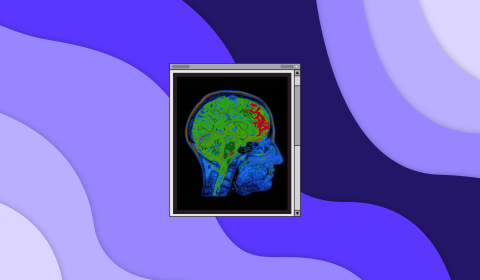inspiration, fashion and double-standards at the Olympics.
![]()
Hey wonderful people!
Jess is on holiday this week and getting some well-deserved sun, so I’ll be taking on your weekly newsletter for today. Read on for more below
This week, we look at equality and fashion at the Olympics, a reconsideration of the origins of life, and some thoughts on the negatives of phone addiction.

 Olympian strides
Olympian strides
The Egyptian fencer shocked the world when she revealed she was 7 months pregnant during competitions at the 2024 Olympic games. The games in Paris have been seen as a landmark for gender equality, with an even split of 5250 women and 5250 men competing and a greater focus on equity, but the scrutiny Hafez has been facing online is underscoring some uncomfortable truths.
Why everyone is obsessed with Olympic sharpshooting style – dazed
The Olympics are about celebrating human achievement and uniting people from all over the world … but if you’ve spent any time on social media recently, you’ll also know it’s about doing all of that with some seriously cool flair. From South Korea’s Kim Yeji serving ‘main character energy’ to Team China’s cyberpunk leathers, shooters in particular are taking home gold for the best-dressed in Paris.
Khaman Maluach becomes South Sudan’s youngest Olympic basketball star – thred.
At 7”2, the 17-year-old basketball player easily stands out in a crowd, though the reasons he’s being celebrated around the world is about much more than his height or even his athletic prowess. His journey from a war-torn childhood to the world stage is a story of resilience, hope, and the unyielding spirit of youth affected by conflict.

 Life on Earth
Life on Earth
As it currently stands, complex life first showed up on Earth around 635 million years ago, but some recent research could potentially push this figure back to 2.1 billion years ago. The team, working in Gabon, say they’ve found evidence showing the conditions necessary for animal life existed 1.5 billion years earlier than currently thought, although they say these organisms were restricted to an inland sea, did not spread any further, and eventually died out. It’s an incredible theory.
These reviled birds of prey literally save people’s lives – vox
Vultures aren’t exactly everyone’s favourite animals, but when they started to disappear from communities in India it had far-reaching consequences for the humans who lived alongside them. In just a few years, the species’ disappearance contributed to the deaths of hundreds of thousands people.
The ‘Internet of Animals’ is about to change our understanding of nature – thred.
A global database that documents the lives of animals and geographical structures could go live as early as next year. The collection of real-time data will inform experts on the behavioural changes of animals as well as environmental shifts – it’s a kind of living ‘internet’ that would centralise and democratise access to much-needed information about the state of nature, from the migrations of birds to the movements of glaciers.

 Virtual realities
Virtual realities
In a world where scrolling has become second nature, we’re increasingly becoming detached from realising just how dependent we actually are on being ‘connected’. There are some good things about phone use, of course, but we really don’t realise just how negatively phone addiction (and the normalisation of it) is impacting us all. After all, it’s hard to imagine lying on your deathbed and thinking, Damn, I wish I spent more time on Instagram.
Our phones don’t have to make us feel miserable – vox
And speaking of phone addiction, vox recently did an interesting article on how new Online Safety Acts for children could pave the way for making phones better for everyone. A big part of this is curbing compulsive use, i.e. making social media a bit less addicting. Is it too soon to say goodbye to endless hours of doomscrolling?
Scientists are attempting to prove that we’re living in a simulation – thred.
Continuing the theme, a former NASA scientist is attempting to prove that we’re living in a simulation. Based on a series of steps, from questioning our role in quantum effects to investigating placebos, the scientist Thomas Campbell is hoping to shed some light on whether the world is more Matrix than material. Like and subscribe if you’re real.
 Recommendations
Recommendations
 Did I say TikTok was bad? Ignore that
Did I say TikTok was bad? Ignore that
![]()
That’s it from me! Thanks for reading and make sure to subscribe for the latest news on Gen Z and youth culture. Also, don’t forget to check out The Gen Zer for a weekly roundup of more trending insights, stories, and discussions.


















